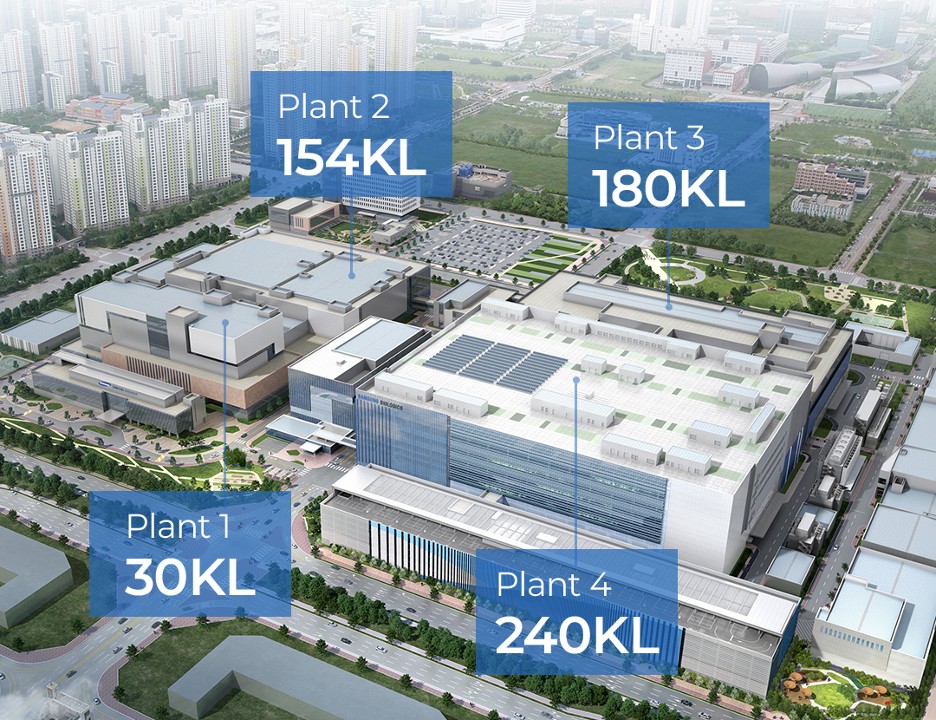mRNA Vaccine Production’s Future Will be Tied to CDMOs, Say Experts at Samsung Biologics
In 2021, Samsung Biologics, one of the world’s largest contract development and manufacturing organizations (CDMOs), partnered with Moderna to provide fill/finish services for its COVID-19 vaccines. These vaccines were revolutionary not only as the first COVID-19 vaccines, but also because they were the first mRNA vaccines approved for human use. The COVID-19 vaccines were a turning point for mRNA vaccine production, and now experts are predicting that mRNA will provide more innovative therapeutics in the future.
The advantages of mRNA vaccine production lie in its easy scalability and editability, and the ease of technology transfer between researchers and manufacturers. Across the pharmaceutical industry, the hope is that these capabilities, demonstrated by the successful large-scale manufacture of COVID-19 vaccines on accelerated time lines, can be applied to treat a range of conditions, ranging from cancer to viruses such as HIV, influenza, and Zika.
“There are over 225 viruses that afflict the human body. However, there are only 25 viruses for which actual vaccines are available, and the global community is challenged to develop more vaccines,” said Melissa J. Moore, chief scientific officer of Moderna, in an interview with the Korea Biomedical Review.
Moore went on to explain how Moderna partners with Samsung Biologics for mRNA vaccine production, and how mRNA sequences can be easily communicated to manufacturing partners.
“The wonderful thing about mRNA is that you can send mRNA sequences to any manufacturing facility worldwide via email or the internet. Afterward, it’s just about using the sequence for manufacturing the treatment and providing them locally.”
A CDMO With End-to-End mRNA Vaccine Production Capabilities
Experts at Samsung Biologics have echoed Moore’s optimism regarding the benefits of quickly communicating and editing mRNA sequences to accelerate the manufacturing process. The CDMO has invested in expanding its mRNA vaccine production capabilities to position itself as a leading mRNA manufacturer as the technology improves.
“The capability for mRNA to be easily edited not only makes it the ideal tool to combat viruses that can quickly mutate, but also gives it the potential to be used in the treatment of countless other diseases,” James Choi, executive vice president and chief information and marketing officer at Samsung Biologics, told the European Pharmaceutical Review.
The benefits of mRNA vaccine production led Samsung Biologics to foreground expanding its capabilities as part of its portfolio diversification efforts. In April 2022, it completed a new mRNA suite capable of providing both drug substance and drug product services. This means that the CDMO can produce mRNA and transfer it to the final vaccine product for patients, all from a single facility.
End-to-end mRNA vaccine production is a complex process that involves several steps, including linearizing circular plasmid DNA (pDNA) molecules and transcribing these molecules into mRNA through an in vitro (cell-free) process. The mRNA is then purified and encapsulated in lipid nanoparticles, which prevent the degradation of mRNA as it’s transferred from the vaccine to the body. mRNA also requires precise cold chain storage conditions to maintain stability, as well as clean room environments for aseptic fill/finishing.
In a recent Q&A, Pierre Catignol, executive vice president and head of manufacturing at Samsung Biologics, and Huisub Lim, lead scientist of mRNA manufacturing, explained the advantages of this one-stop-shop approach, noting that, as mRNA vaccine production is still in its early stages across the industry, few companies can provide these advantages.
“Few manufacturers/CDMOs are adequately equipped or capable of carrying out all manufacturing steps, leading to logistical, monetary, and time line difficulties,” said Catignol and Lim. “Frequent handling of mRNA across multiple locations increases contamination and degradation risks. When the entire work stream is coordinated by one partner, from a single location, transitions across development and production tasks run smoothly, maximizing efficiency and mitigating potential risks.”
An mRNA Vaccine Production Use Case
Samsung Biologics demonstrated the capabilities of its expanded mRNA vaccine production suite with the completion of a commercial-scale manufacturing run of GreenLight Biosciences COVID-19 mRNA vaccine.
The run was completed just seven months after the initial technology transfer, demonstrating the speed at which mRNA vaccines can be developed through a CDMO partnership. It produced 650 grams of mRNA with a titer of 12 grams per liter at commercial scale.
“This demonstrates a major achievement in our continuing goal to offer one-stop, end-to-end mRNA production from drug substance to aseptic fill Finish to commercial release, all from a single site, as we strive across our biomanufacturing network to fight the pandemic,” said Samsung Biologics president and CEO John Rim in a press release announcing the completion of the partnership’s first manufacturing run.
While Samsung Biologics and others in the industry have understandably been focused on fighting the pandemic with mRNA vaccines, there is optimism throughout the industry regarding the potential for mRNA to treat a wide range of conditions.
An extensive analysis of the mRNA drug development market published in Nature assessed the potential of both preventive, or prophylactic, vaccines and therapeutic vaccines used to treat existing conditions. The report predicted that the markets for non-COVID prophylactic mRNA vaccines and personalized cancer vaccines could each reach the range of $7 billion to $10 billion by 2035.
To accommodate diverse potential applications for mRNA technology, CDMOs need to be adaptable to different production scales, said Catignol and Lim in a recent white paper, and this scalability has been a focus for Samsung Biologics across all its manufacturing platforms, as it works with both smaller and larger companies with a range of production scale requirements.
“We have tech-transferred 139 biologics products, which translates to 13 products per year. While these projects involved antibodies, all of the knowledge gained during downstream purification and analytical testing can be leveraged for mRNA programs.”
Catignol and Lim explained that providing end-to-end service in-house is a key to providing scalability, and thus a key to fostering collaboration on a range of projects, as mRNA technology develops and is applied to new applications.
“Our teams of experts are working around the clock to solidify Samsung Biologics as a manufacturing hub for scientific innovations to help save the lives of people worldwide.”








